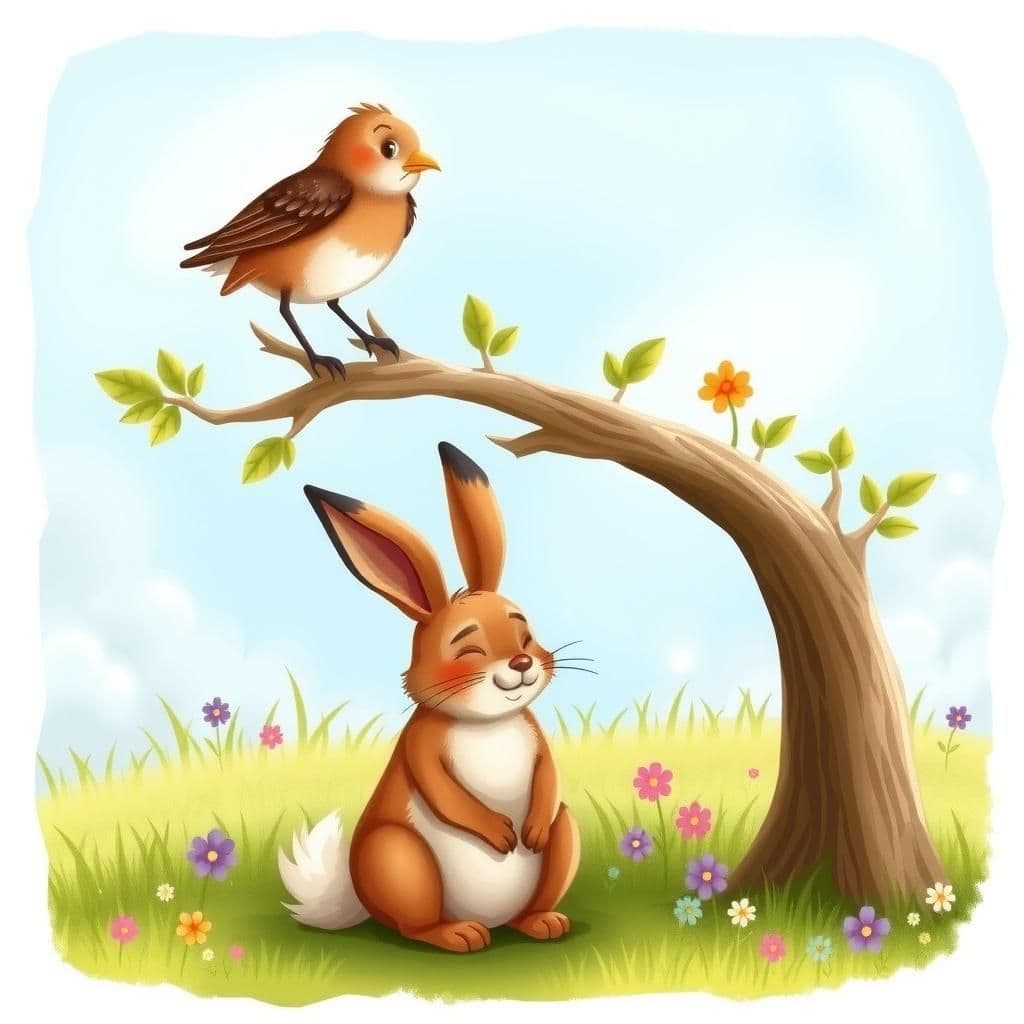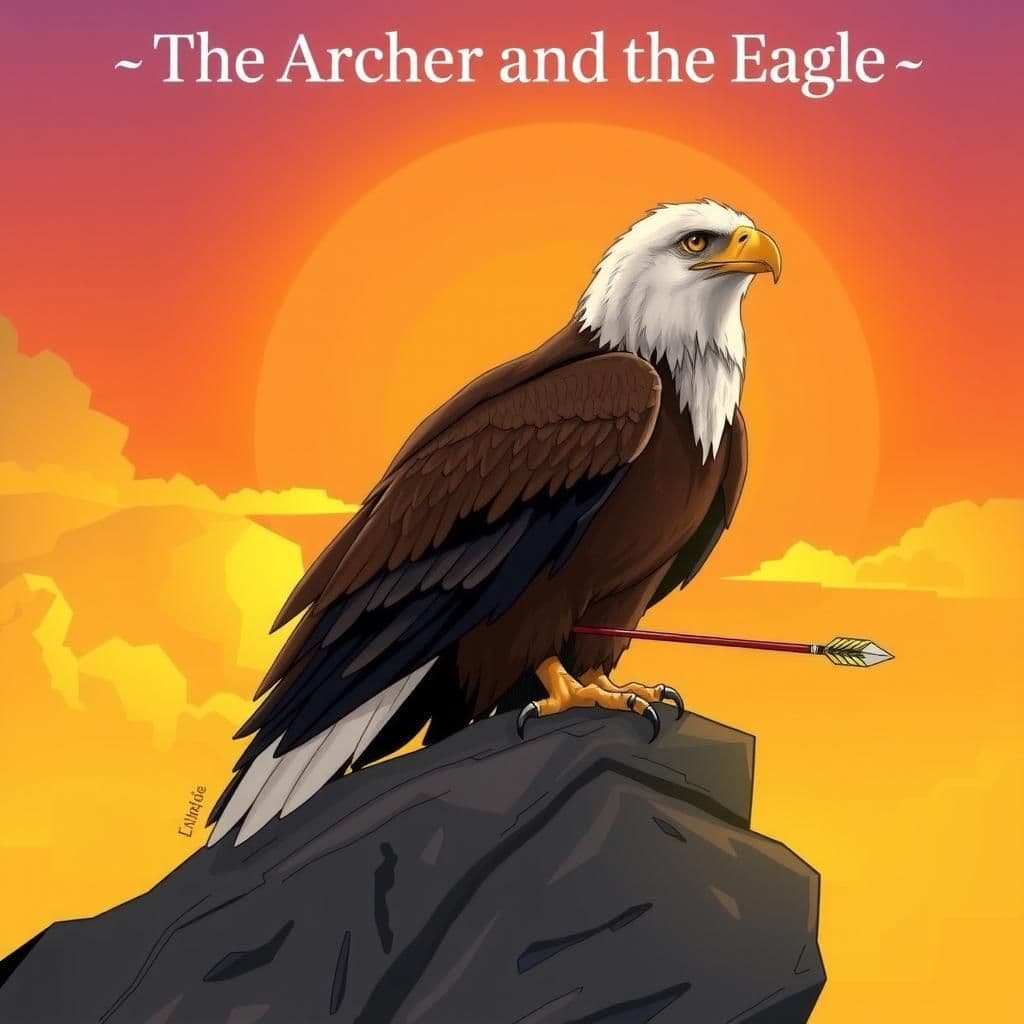The Sparrow and the Hare
In "The Sparrow and the Hare," a Hare weeps after being attacked by an eagle, only to be mocked by a Sparrow for her lack of speed. However, the Sparrow soon faces a similar fate at the claws of a hawk, providing a poignant lesson in the unpredictability of fate. This short and sweet moral story reminds us that even those who gloat over others' misfortunes may find themselves in a similar predicament.

Reveal Moral
"The moral of the story is that one should be cautious in mocking others, as fortunes can change quickly and lead to one's own downfall."
You May Also Like

The Austere Governor
In "The Austere Governor," a moral story highlighting the lessons learned from hypocrisy, a governor visits a state prison and refuses to pardon a convict who abused his office for personal gain. Ironically, he then reveals his own corruption by asking the warden to appoint his nephew in exchange for political favors, illustrating the theme that those who preach integrity may themselves lack it. This short tale serves as an inspirational story with a moral, reminding readers of the importance of true ethical conduct.

The Archer and the Eagle
In "The Archer and the Eagle," a mortally wounded eagle finds comfort in the fact that the arrow that struck him was feathered with one of his own quills, highlighting a profound lesson from moral stories. He reflects, "I should have felt bad, indeed, to think that any other eagle had a hand in this," showcasing the depth of his acceptance. This captivating moral story reminds us that sometimes, the source of our pain can provide solace, making it one of the best moral stories to inspire resilience.

A Forfeited Right
In "A Forfeited Right," a Thrifty Person sues the Chief of the Weather Bureau after relying on his accurate weather prediction to stock umbrellas that ultimately go unsold. The court rules in favor of the Thrifty Person, highlighting the moral lesson that one can forfeit their right to truthfulness through a history of deception. This classic moral story serves as an inspirational reminder about the importance of integrity and trustworthiness in communication.